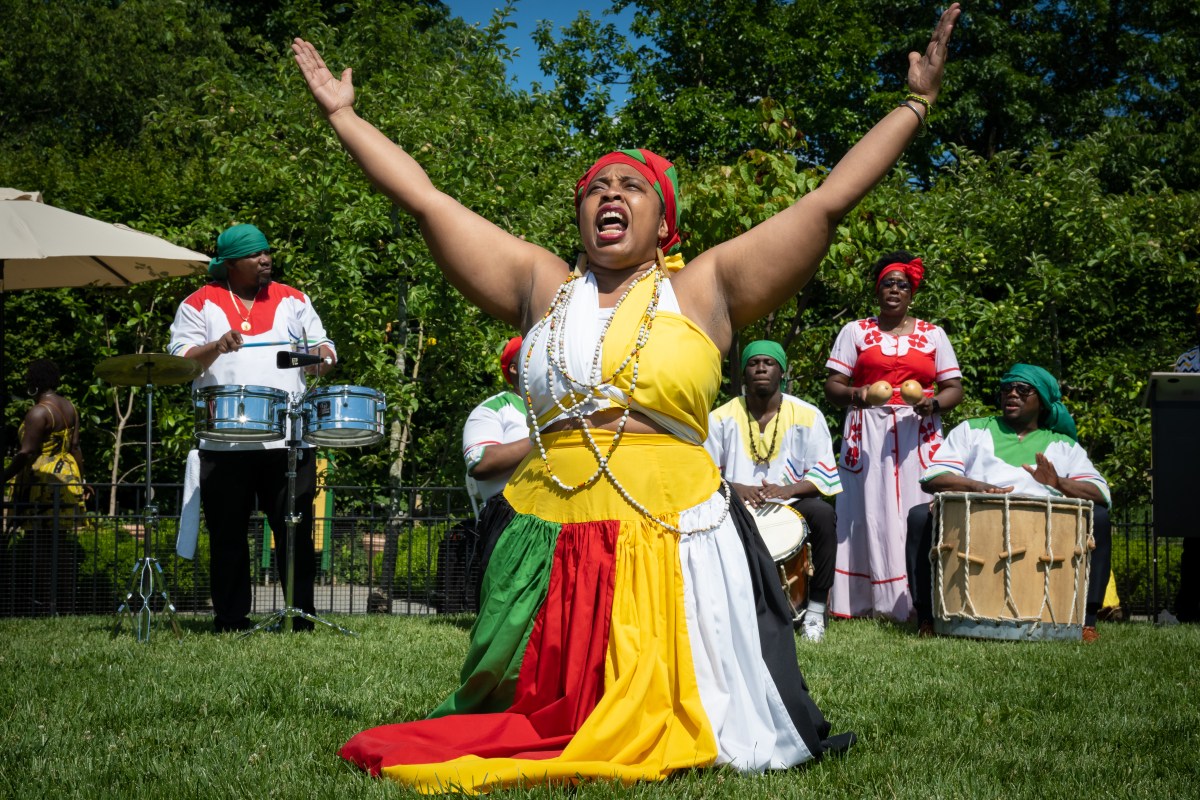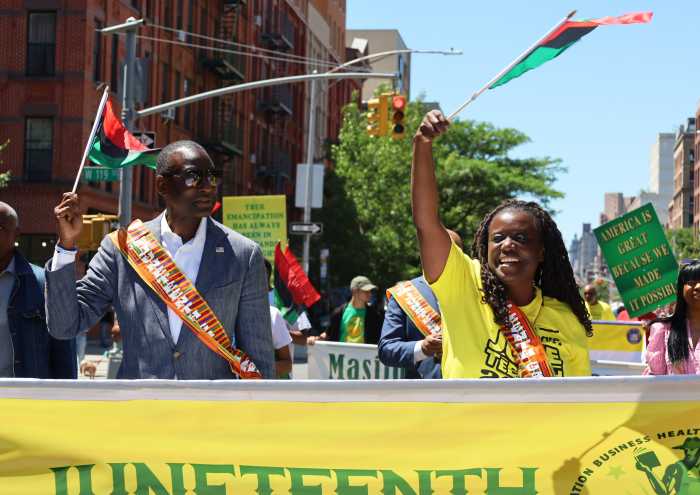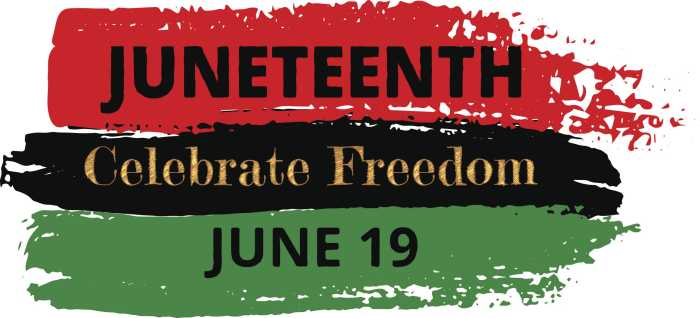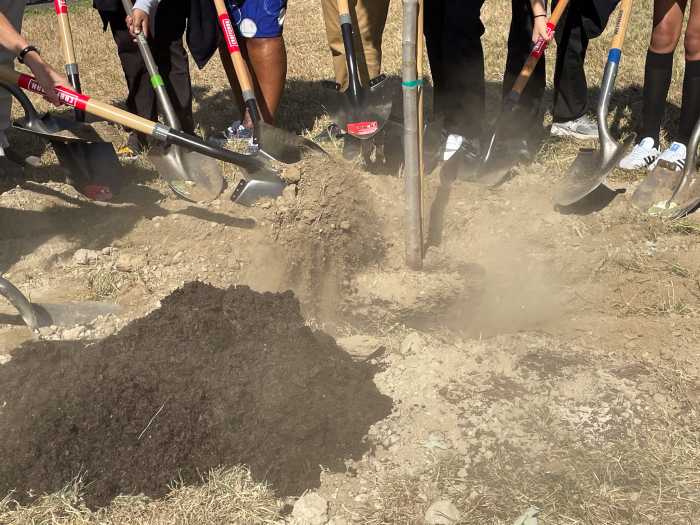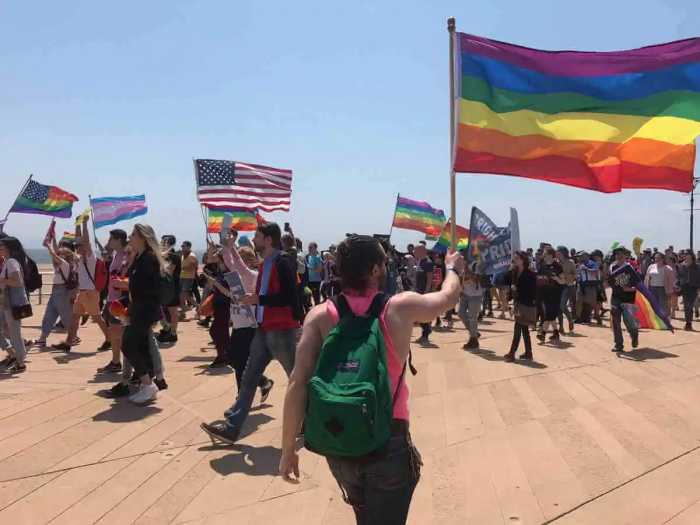As the second Black mayor of New York City, I am proud to celebrate Juneteenth, a day that commemorates June 19, 1865, when every enslaved Black American was finally free. This is a day of importance not just for Black Americans, but for all Americans. It is a day when the promise of freedom finally matched Black Americans’ lived reality. It is a day when the freedom for which America is known for around the world finally became available to a wider group of citizens.
However, as we all know, that was only the start of a longer struggle — a struggle for equal access from housing and health care to the ballot box and boardrooms that continues to the present day. In honor of Juneteenth and the progress we have made over the past centuries and decades, our administration wants to play its part in using the present to reckon with our past so we can build a better future.
New Yorkers walk through neighborhoods like Brooklyn every day, unaware of the history right under their feet and surrounding them. To tell that history, we launched “More Than a Brook: Brooklyn Abolitionist Heritage Walk,” an interactive audio tour that explores Brooklyn’s history as a critical neighborhood for the National Abolitionist Movement and the Underground Railroad. The 4.5-mile walkable path incorporates 19 stops highlighting the many landmark sites that capture the borough’s rich abolitionist history. Along the way, in addition to seeing famous abolitionist sites, you can learn about important local historic figures, including businesswoman Elizabeth Gloucester, pioneering sisters Dr. Susan Smith McKinney-Steward and educator Sarah J. Tompkins Garnet, and Plymouth Church preacher Henry Ward Beecher. The tour can be accessed on your smartphone, tablet, or other device through the Landmark Preservation Commission’s website. With this interactive tour, our city can celebrate the heroes who stood up against injustice, risked their lives, and fought for the freedom they deserved.
The city’s abolitionist history lives across all five boroughs. In Staten Island’s Oakwood Heights, we are commemorating our shared history by designating the Frederick Douglass Memorial Park as a landmark. The Frederick Douglass Memorial Park is the only non-sectarian cemetery founded by — and specifically for — New York City’s Black community. The memorial park opened in 1935, offering a dignified cemetery for Black New Yorkers at a time when discrimination and segregation excluded them from other burial sites and limited them to substandard facilities and services. In a time when others turned their backs on Black New Yorkers, this park chose to open its doors. The 14.88-acre burial site memorializes Black heritage and honors the generations of Black Americans who are buried there. Frederick Douglass Memorial Park offered a dignified and dedicated space for the Black community to honor those who transitioned. But, our remembrance of Juneteenth cannot be just symbolic, but substantive.
As recently as last January, Black New Yorkers were four times more likely to be unemployed than white New Yorkers, but, thanks to our efforts, we have been able to narrow this gap, and now the unemployment rate for Black New Yorkers is at its lowest point in half a decade. This marks the first time since 2019 that the Black unemployment rate in New York City has been below 8 percent. And between January 1, 2022, and April 1, 2024, the Black unemployment rate in the five boroughs decreased from 10.7 percent to 7.9 percent — a 26 percent decrease. While our work is never done, our city is making real progress in delivering economic equity.
This Juneteenth, I call on all New Yorkers to learn about and honor our city and nation’s inspiring and troubled past and continue to build on the progress we have made. Let us celebrate American ideals, American freedoms, and American potential, together. And let us start right here, in the most diverse city on the globe, a place where those from all walks of life live side by side, proud to call themselves by one name: New Yorkers.



